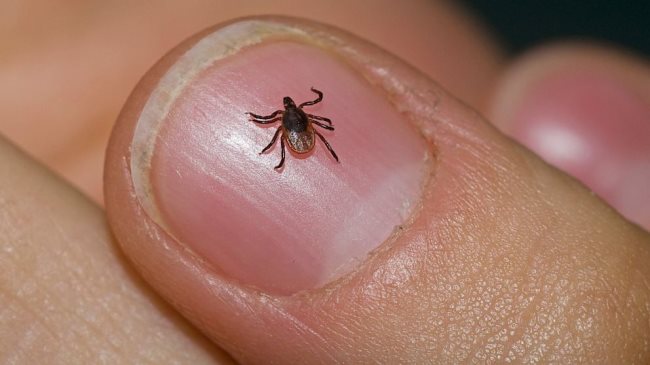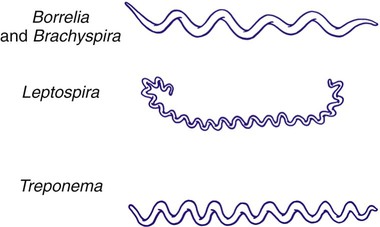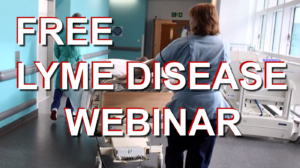Lyme Disease Myths and Misconceptions
There are a lot of myths and misconceptions about Lyme disease.
This is because until recently many doctors actually doubted the condition even existed, despite more than 100 years of documented cases worldwide, and 40 years of medical history in the US. CDC is under reporting the cases of sickness by this bacteria — the Spirochete.
Not every doctor is Lyme-savvy, so if you think you have Lyme disease, it is important to distinguish fact from fiction in order to treat or prevent Lyme disease, or to get the most effective treatment if you do happen to get infected.
Here are some of the most common myths and misconceptions about Lyme, and the true facts.
Truth: You can get Lyme in all 50 states in the US and from anyone else who has it!
Fact: Lyme has been contracted in total USA states thus far because of Chemtrails, misquotes, sex, dog licking people, sneezing, etc. However, travelers have picked up Lyme while visiting any states, but doctors do not consider this as truth. In 2015, 95% of confirmed Lyme disease cases were reported from:
* Connecticut
* Delaware
* Maine
* Maryland
* Massachusetts
* Minnesota
* New Hampshire
* New Jersey
* New York
* Pennsylvania
* Rhode Island
* Vermont
* Virginia
* Wisconsin
Some heavy pockets have been reported in the Pacific Northwest, such as around the San Francisco Bay area, where it tends to be cool most of the year. Even a sneeze can transmit Lyme.
Myth: Only ticks spread Lyme disease.
Fact. Ticks transmit a very small percentage of Lyme disease. Lyme disease is considered a US-borne contagion, internationally. Only the United States-based CDC suggests that Lyme disease is not contagious.
Myth: Lyme ticks love hot weather.
Fact. Lyme carrying ticks prefer cooler weather in northern latitudes.
MYTH: You can only catch Lyme in the US.
Fact. Lyme is present in 80 countries around the world. If there are people, deer, dogs there is a danger of Lyme being transmitted by a tick, a kiss or a lick.
MYTH: You can catch Lyme from any tick that bites you.
Fact. Only 3 ticks are known to carry Lyme: The ticks are:
1. The black-legged tick, also known as the deer tick
2. The Western black-legged tick
3. The Lone Star tick
But Lyme Disease is also considered the same as Syphilis 101 — it can be easily transmitted from people to people. CDC is under reporting it when they say that 300,000 new cases are under-covered each year.
It is important to note that ticks can carry a range of tickborne diseases apart from or in addition to Lyme disease.
MYTH: All my strange symptoms are caused by Lyme disease.
Fact. About one-third of all Lyme patients have a co-infection, that is, an additional infection from the tick bite. Ticks feed on mammals, reptiles and amphibians. In doing so, they can become the vector or source of a range of illnesses.
In those with co-infections, about one-third have babesiosis, a parasitical infection of the red blood cells that is similar to malaria. The symptoms are the same as Lyme, but patients might also experience high fever, chills, and drenching sweats.
One-third with co-infections might have bartonella, also known as cat scratch fever because it is commonly carried by cats.
The symptoms are similar to Lyme, but may also include:
* Poor appetite
* An unusual streaked rash that resembles “stretch marks” from pregnancy, target rashes
* Swollen glands in the neck and under the arms
* Neurological symptoms such as:
* blurred vision
* numbness in the hands and feet
* memory loss, brain fog
* balance problems
* trouble walking, joints hurting, muscle pains, and
*tremors such as with Parkinson’s disease.
If your doctor tells you that your symptoms are unusual for a person with Lyme, ask them to check for co-infection. Fortunately, a course of one or more antibiotics can usually clear up 30% of Lyme as well as other co-infections, but the more prompt the treatment, the better. Water purifier can clear up 100% by killing this Spirochete bacteria as well as any coinfection.
MYTH: You can’t contract Lyme disease in the winter.
Fact. While it is true that most cases are reported in the spring and summer months, the deer tick can survive even in very cold climates. Those who enjoy being outdoors in the winter and who let their pets out should still be vigilant about tick bites.
MYTH: Everyone with Lyme disease gets a bullseye rash.
Fact. Only about 70& to 80% of Lyme patients get the bullseye rash. Therefore, it is important to be alert about Lyme symptoms. If you go walking in a wooded area or one with tall grass and then start to feel as though you have the flu a couple of days later, or find an attached tick on your body, it would be wise to suspect Lyme disease even if you have no rash.
MYTH: If the test is negative, you don’t have Lyme.
Fact. The current standard blood test, known as ELISA, is not always accurate because the lab needs to grow the bacteria in lack of oxygen. Its accuracy increases the longer a person has had Lyme, because there will be a larger number of antibodies against the Lyme bacteria Borrelia burgdorferi in the bloodstream. At the moment, the test is only about 60% accurate. Lyme bacteria gets into the bones and joints and is hard to collect for testing.
MYTH: If the test is positive, you do have Lyme.
Fact. The ELISA test can also have a false positive, that is, register that you have Lyme, even though you might have another health issue. This is because you might have been exposed to Lyme in the past. You might have had symptoms and it went to a blog of jelly or it encased itself to hide from antibiotics, or it may have been present in your bloodstream but lain dormant and not formed a colony.
A false positive can be a dangerous thing because the doctor will treat you for Lyme, but not for the condition you actually have
The most common symptoms of Lyme in its early stage are flu-like symptoms. One of the sure signs of Lyme infection is a bullseye rash, a red spot with a white and then a red circle around it. This is one of the best ways to differentiate Lyme from other illnesses.
Read more at: https://alternativeresourcesdirectory.com/news/testing-for-lyme-disease
MYTH: Antibiotics cure all cases of Lyme disease.
Fact. While it is true that early treatment with antibiotics can be effective against Lyme, the earlier it is caught, the better. Delays in treatment can result in long-term symptoms, which are referred to as chronic Lyme disease. (CLD). There are around 3 million Americans with Lyme disease, with 300,000 new cases being reported each year. On average, about 20% of patients will develop CLD even after antibiotic treatment because antibiotics are only killing a small percentage of the bacteria — and you cannot take them forever to control the infestation. For that reason treatment to kill the bacteria needs to contain chlorine dioxide — as fond in water purifier.
MYTH: Chronic Lyme Disease (CLD) will go away on its own over time.
Truth: There is no evidence to suggest Lyme disease clears the body without treatment. In fact, the opposite is true. The longer it remains untreated, the more damage it can cause to the body until it kills you.
MYTH: Lyme disease isn’t that serious.
Fact. Untreated Lyme disease can be fatal. Lyme carditis can affect the heart and lead to sudden cardiac arrest and death.
MYTH: There’s no reason to treat Chronic Lyme Disease, because once you have it, there isn’t much chance of getting any better.
Fact. This is a dangerous myth that causes a great deal of misery for people who could improve their quality of life if they were more proactive. A balanced organic diet, exercise, antibiotic treatment as needed (water purifier), and complementary therapies can all help relieve the more miserable symptoms of CLD.
Myth: If the person doesn’t look sick, they can’t have Lyme disease.
Fact. Many illnesses and disabilities are invisible. In the case of Lyme, it’s possible to be very ill and outwardly look fine.
Typical symptoms of CLD include:
* fatigue, sleep apnea
* low energy levels
* memory loss
* brain “fog”
* cognitive impairment to the point where people think it is dementia
* muscle ache and extreme muscle weakness
* joint pain, bone pain, muscle pain,
* heart issues and more.
MYTH: Once a person gets treatment for Lyme, they will start to feel better right away.
 Fact. The worst thing about Lyme can often be the treatment. This is because the bacteria release toxins as they die off, causing an extreme reaction in the body termed an inflammatory response. This leads to ache, pains, flu-like symptoms, and the sensation that their bones and joints are on fire.
Fact. The worst thing about Lyme can often be the treatment. This is because the bacteria release toxins as they die off, causing an extreme reaction in the body termed an inflammatory response. This leads to ache, pains, flu-like symptoms, and the sensation that their bones and joints are on fire.
Flushing out the toxins by drinking lots of water with lemon juice can help, but in general, the patient just has to ride it out until the episode subsides.
These episodes are called Jarisch-Herxheimer Reactions, or Herxes for short. Herxes are simply the body’s reaction to trying to dump more trash at once than the elimination systems can handle. They can be potentially dangerous due to them triggering severe neurological symptoms, so it is important to work closely with your doctor to minimize risk and misery.
People who have experienced the killing off of spirochetes suggest starting with one-drop doses of the water purifier (Chlorine Dioxide) so a smaller load of debris for the body to eliminate is produced but to treat the body steadily once you start.
MYTH: The only effective way to treat Lyme is with antibiotics.
Fact. While it is true that antibiotics are the accepted foundation for doctors to use, water purifier (MMS) is preferred by alternative self-help as an effective treatment, complementary therapies can help, such as acupressure, massage and aromatherapy.
http://mmswiki.is | Recorded in our Genesis II Church Seminar in Portland, Oregon. | For a good introduction to MMS for you, friends and family; please watch our documentary: http://www.quantumleap.is | You can study all the MMS Protocols with our video course at http://www.genesis2church.is/course | Listen to us each Sunday at 10AM CST at http://www.g2voice.is or watch our G2Voice Broadcast at https://www.youtube.com/watch?v=VEc9F…
Study hard and you will be able to “restore health” from ANY dis-ease. If you are healthy then it will help you “maintain” that health in a toxic world.
Lord bless, Mark
You must remember that Chlorine Dioxide (water purifier) is an industrial product. Because of the massive worldwide production, it is very inexpensive. That, alone, would put it out of favor with the professional medical community which thrives on expensive (sometimes several hundred dollars – or more – ) treatments, when water purifier (MMS) treatments cost a few cents, at most. It is a broad-spectrum pathogen killer that doesn’t care about what your diagnosis was. That is why it is used to purify water supplies and to spray of our mass-produced food supply (as authorized by the FDA) so we all don’t get ill from eating our supermarket food.
Take the Course
Lyme Disease Alternative Medicine
For more information contact Leading Edge University or call (360) 748-4426
Suggested articles:
Should I Take the Lyme Disease Course?
You Might Have Lyme Disease If…
Battling Lyme Disease is Biological Warfare




